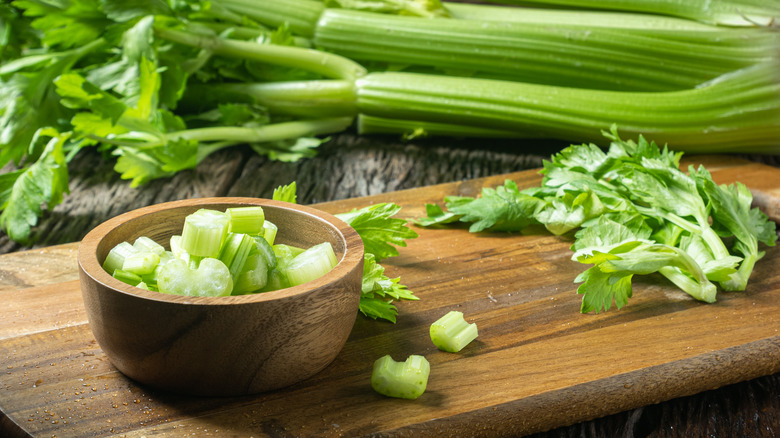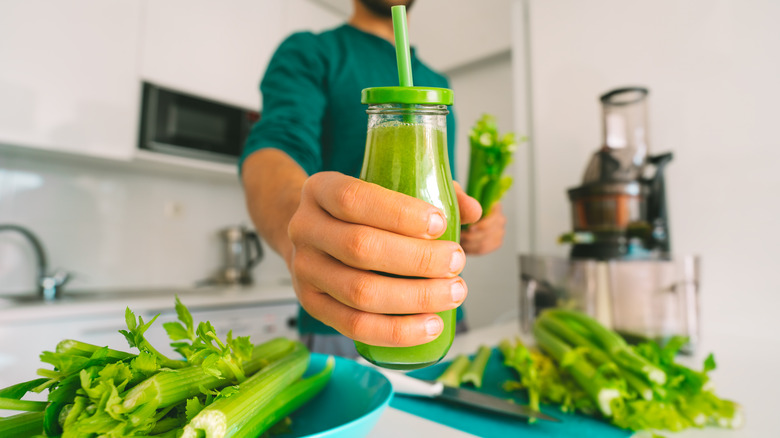Can You Eat Too Much Celery?
If you're looking for the hero of vegetables, the unseen base for a variety of soups, and a superstar of superfoods, look no further than celery. Thanks to its high water content and being extremely low on calories, this crunchy vegetable is making a name for itself, with celery juice popular amongst celebrities and elite athletes, according to Eating Well.
But, can you eat too much celery? The simple answer is yes, because as with any food, overdoing it can result in more harm than good, but let's get into the science behind why.
According to Live Science, celery is chock-full of phytonutrients, vitamin K, folate, potassium, and fiber. However, it contains only small amounts of vitamin C, A, and B. Each stalk is about 10 calories, which explains how it grew in popularity within diet culture (per Healthline).
While its nutrients make up a big part of its lure, this vegetable is also known to contain high amounts of pesticides. The Environmental Working Group makes a list of the top foods with pesticides called "the Dirty Dozen", and celery frequently makes the list.
What happens when you eat too much celery
Healthline points out that celery has some great health benefits such as neutralizing acidic foods, reducing inflammation, and supporting the digestive system. Although these health benefits exist, overly indulging in this stardom vegetable can have a negative impact (per LiveStrong).
"Since celery is mostly made of water (almost 95%), it is not particularly high in any vitamin or mineral," states Megan Ware, a registered dietician nutritionist, to Live Science. Moreover, celery is low in calories and if a diet is centered around eating too much celery, it may be hard to reach your daily caloric intake. Not eating enough calories can cause serious health problems. LiveStrong warns that eating a diet that is too restrictive can cause nutrient deficiencies, impair brain function, decrease energy, and lead to gastrointestinal problems.
Other reports from Eating Well convey that excessive amounts of celery could interact with medications, specifically blood thinners, due to the increase in vitamin K. Whether you're drinking celery juice, or eating it with a scoop of hummus, consider buying organic celery to reduce pesticide exposure. Shift away from "temporary dieting" where one might prioritize celery and instead focus on creating a healthy lifestyle that prioritizes a balanced diet.


